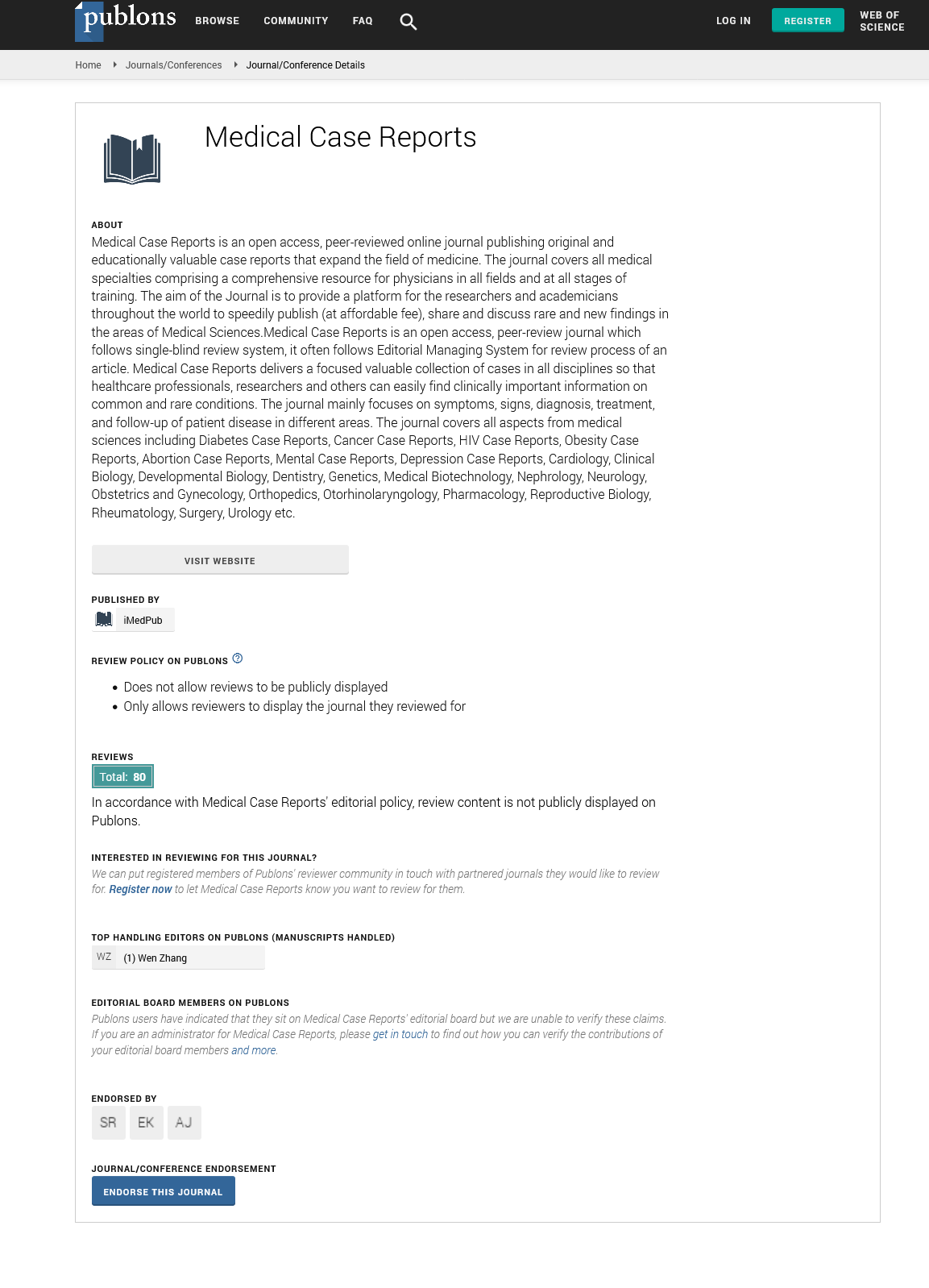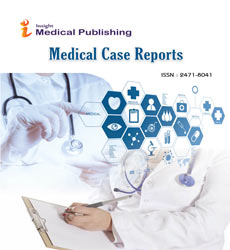Abstract
When a Routine Treatment for Agitation Causes Serious Harm: A Case of Rapid Onset Neuroleptic Malignant Syndrome
This case study is meant to educate medical personnel on how to recognize and manage neuroleptic malignant Syndrome (NMS), a serious adverse effect due to anti-psychotics and simultaneously highlighting this case as exceptionally rare given the rapidity of onset (<3 hours). We encourage providers to avoid reflexive orders for agitation/restlessness and consider other non-pharmacologic modalities and/or to adopt an initial reduced dosing strategy when appropriate. This case also assists to provide a better knowledge base regarding consequences of NMS and probable risk factors for developing this pathology. We describe a case of an 83-yearold female with a history of dementia who presented for behavioral changes according to her daughter. The patient underwent a recent long and appropriate tapering off of her opiates, which therefore negated any possibility of this being opiate withdrawal. Upon arrival she was quite agitated and subsequently received intravenous haloperidol. Following this, the patient developed an unusually rapid onset of rigidity, tachycardia, fever, and encephalopathy with laboratory findings revealing an elevated serum creatinine kinase. Her deteriorating status was reversed with the muscle relaxant, dantrolene, over the next 24 hours. Given her symptomatology and response to treatment, she was diagnosed with NMS.
Author(s):
Kaitlyn Marie Egger , Christopher Donald Palmer
Abstract | Full-Text | PDF
Share this

Google scholar citation report
Citations : 241
Medical Case Reports received 241 citations as per google scholar report
Medical Case Reports peer review process verified at publons
Abstracted/Indexed in
- Google Scholar
- China National Knowledge Infrastructure (CNKI)
- Cosmos IF
- Directory of Research Journal Indexing (DRJI)
- WorldCat
- Publons
- Secret Search Engine Labs
- Euro Pub
Open Access Journals
- Aquaculture & Veterinary Science
- Chemistry & Chemical Sciences
- Clinical Sciences
- Engineering
- General Science
- Genetics & Molecular Biology
- Health Care & Nursing
- Immunology & Microbiology
- Materials Science
- Mathematics & Physics
- Medical Sciences
- Neurology & Psychiatry
- Oncology & Cancer Science
- Pharmaceutical Sciences


